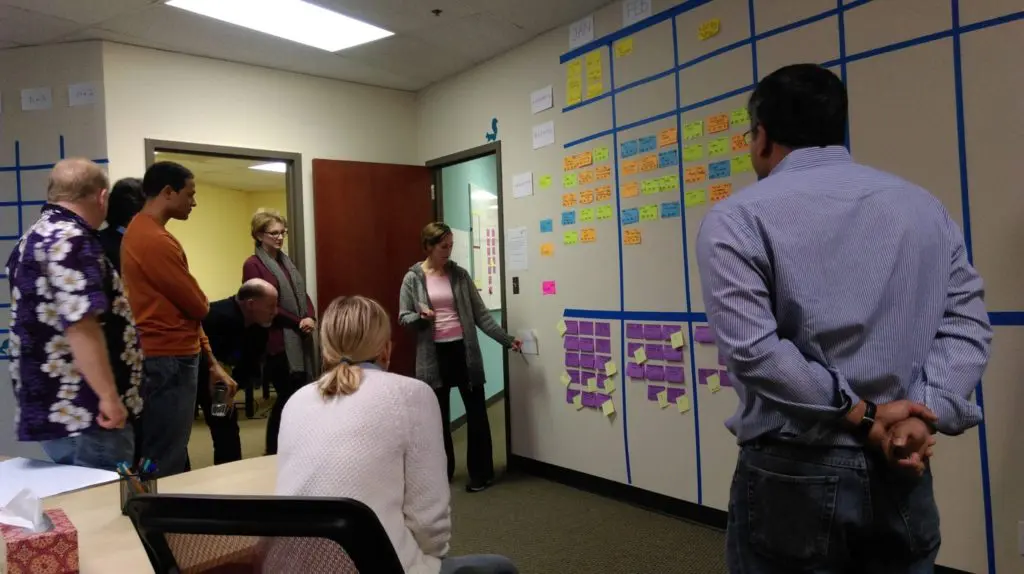I recently got into a conversation about Cost of Delay and decided to pull together my musings.
Here’s a good article on the core theories behind Cost of Delay from Black Swan Farming:
Another of their articles explains a nice, simple way of going about a more qualitative and less strictly economic approach to the method:
The major story types that are usually associated with cost of delay are:
· Expedite – critical and immediate cost of delay; can exceed kanban limits and trump other work
· Fixed date – cost of delay goes up significantly after deadline; start early enough & dynamically prioritize to ensure on-time delivery
· Standard – cost of delay is shallow but accelerates before leveling out; provide a reasonable lead-time expectation
· Intangible – cost of delay may be significant but is not incurred until much later; important but not urgent, plan when convenient
In essence, you generally want to
- assess your work items historically
- see how they align with the categories above
- then start playing with how you allocate your capacity against the observed mix of work types to ensure that none of them have their cost of delays realized.
You’d have regular meetings to see what’s on deck, and given the urgency profiles noted above, you can pull the appropriate items from each category. Understanding where dependencies lie would be important here too, as tightly interwoven items should generally be addressed together to maximize the delivery of actually “shippable” work packages.
A basic agenda for a prioritization session, which you might do something like once a week or once every other week, could be:
- Review deliveries since last session and see if they change anything (this part could also be separate into a Sprint Review-like session)
- See if any Expedite cards exist, and if so reduce capacity to address them
- See if any Fixed Date cards are coming due on a date that would require them to be started now
- See if any Standard cards are coming up on their lead time expectation such that they would need to be started now
- Scan for Intangible cards to do that would fit well with the other work or enable coming work, and fill the remaining time with those
Interested in applying these concepts with your teams? Check out our Team Workshops or contact us to customize agile training or coaching for your needs.

